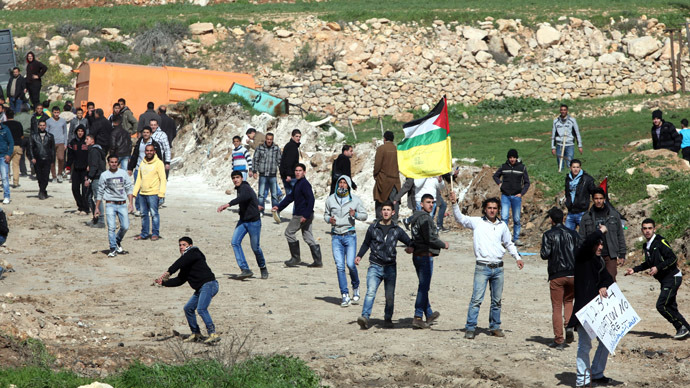The Israeli government has reported that only 0.7 percent of Israeli ‘state land’ in the West Bank has been given to Palestinians over the past three decades; around 38 percent was allocated to Jewish settlements, according to new evidence.
The Civil Administration, the organization responsible for distribution of Israeli 'state land,' released evidence to the High Court of Justice showing that the land allocation process has become politicized, Haaretz reported.
Israeli state land in the West Bank consists of 1.3 million dunams (approximately 325,000 acres), the majority of which is being used to expand Jewish settlements.
The information came to light after a failed attempt by the Association for Civil Rights in Israel and Bimkom (Planners for Planning Rights) to receive data from the Civil Administration on state lands in the West Bank, leading to a formal request for the court to intervene.
On March 28, the Civil Administration was ordered to reveal how out of 1.3 million dunams in the West Bank, the state still holds 671,000, while the World Zionist Organization was given 400,000 dunams, and another 103,000 were distributed between mobile communications companies and local governments for the construction of public buildings.
Other utilities companies received 12 percent of the state land, amounting to 160,000 dunams. In comparison, Palestinians received a total of 8,600 dunams (2,150 acres), or 0.7 percent of the region's state land.
‘State land’ allocation as a political tool
Many critics have argued that the land allocation process is unfair, and is being used to expand Israeli settlements.
“The data on allocations to the Palestinians, which the Civil Administration was forced to reveal, show [that] Israeli policy determines that ‘state lands’ in the West Bank are for the use of Israelis only − mainly settlers,” a researcher at Bimkom Nir Shalev told Haaretz.
According to researchers, the process to determine which lands become 'state lands' has become politicized and rigged since it was adopted in 1979 as a response to the unconstitutional state practice of seizing Palestinian land. Israel began using a new process to take over large areas of the West Bank as state land as a way to skirt an Israeli court ruling that prohibited seizing Palestinian land for 'military purposes.'
Israeli law states that any land under cultivation for at least 10 years becomes the property of the farmer, and cannot be seized by the state. The Civil Administration was initially tasked with investigating testimonies and aerial photos to determine which lands were being cultivated in order to establish which lands are private properties.
However, authorities began seizing parcels of private and unregistered Palestinian land, arguing it was ‘insufficiently cultivated.’
"But of course, the intention was to take as much land for settlements as possible," independent Israeli settlement expert Dror Etkes told The National.
There are multiple confirmed cases of incidents where cultivated Palestinian land was destroyed and seized as state land by authorities. In January, the Civil Administration in the Ofer Military Court acknowledged that the seizure decisions are indeed politically motivated, Haaretz reported.
A High Court case regarding the Hayovel outpost showed that in order to seize cultivated land that had a number of Palestinian houses on it, the government declared the area between cultivated parts as 'uncultivated,' and then listed it as state land. Palestinians petitioned against the decision, launching a seven-year legal battle.
“The official who decides on the declaration [of state land] is at the political level, the defense minister,” Gilad Palmon of the Civil Administration’s oversight unit told the court. Another representative, Yossi Segal, said that “the political echelon decides the size of the area.”
Researcher Dror Etkes argues that authorities pick and choose which territories to declare state land depending on their importance for Israeli settlement expansion, including regions near Susya, Tekoa, Ma’aleh Adumim and Kiryat Arba.
“The findings, which are a sampling, prove the claims that Palestinian landowners have been consistently presenting over the past few decades: Under the aegis of the broad declaration of lands as ‘state lands,’ which includes almost a million dunams,” Etkes told Haaretz. “Israel has taken over extensive cultivated areas, which were stolen from their owners through administrative decisions over which public and legal oversight is minimal, because they were supposedly not cultivated.”
The Ma’aleh Adumim area was partially cultivated in the 1970s, but in 2005 the entire region was seized as state land, and is now under settlement construction.
The international community considers Israeli’s control of the West Bank to be a military occupation. In July 2004, the International Court of Justice ruled that the West Bank, including East Jerusalem, is territory held by Israel under military occupation; Palestinian Arabs comprise more than 80 percent of the population in the area.

